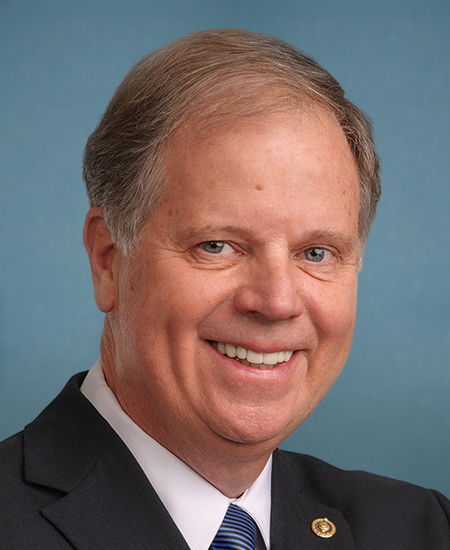Our Supporters
-

Sen. Doug Jones
D-AL
Introduced on: 2018/07/10
Senate Sponsor
-

Rep. Bobby Rush
D-IL
Introduced on: 2017/03/01
On January 8th, 2019, the Cold Case Act was signed into law by President Donald Trump.
The Civil Rights Cold Case Records Collection Act of 2018 aims to bring justice to the victims of civil rights cold cases. To achieve this, the legislation establishes a review board, independent of the FBI, to oversee the release of documents pertaining to cases.
For the full text of the bill, click here.
Also check out our article featured on Politico, The Washington Post, and CNN.
Well, for starters, share the news! Share this website and tell your friends and family about our efforts.
| Role | Name | District | Legislative Director Email | Phone |
A: The current system of obtaining documents—Freedom of Information Act requests, or FOIA—is slow, leads to significant overeadaction, and makes it difficult for private investigators to solve these cases. Because of its sheer size, the Department of Justice is unable to give the time necessary to solve cases that happened decades ago but still are in need of resolution. When tasked with solving 126 cases under the Emmet Till Act, the FBI closed 113 of these cases without resolution. An additional 8 were handed down to the states, meaning the FBI no longer involved itself with them.
A: Private investigators, family members, and even high schoolers have made headway in closing a handful of these cases. However, they can't do so without the documents the FBI either won't release without significant redaction or release so slowly the cases come to a halt.
A: Solving these cases can bring closure to the families involved in these cases. It will bring justice to those who, until now, have gone unpunished for committing some of the most heinous crimes in our nation's history.
A: No. Part of the bill allows the President to override any decision of the review board. The law is modeled after the John F. Kennedy Assassination Records Collection Act of 1992, which created a similar review board for the Kennedy assassination. Since 1992, between the FBI and CIA, there has only ever been one challenge on a review board decision, and that challenge was dropped and the document released before presidental intervention was sought. This medium of reviewing and releasing information has proven extremely effective in the past.

Sen. Doug Jones
D-AL
Introduced on: 2018/07/10

Rep. Bobby Rush
D-IL
Introduced on: 2017/03/01
If you need to get in contact with us or simply want to learn more, please feel free to reach out to us
Email: [email protected].